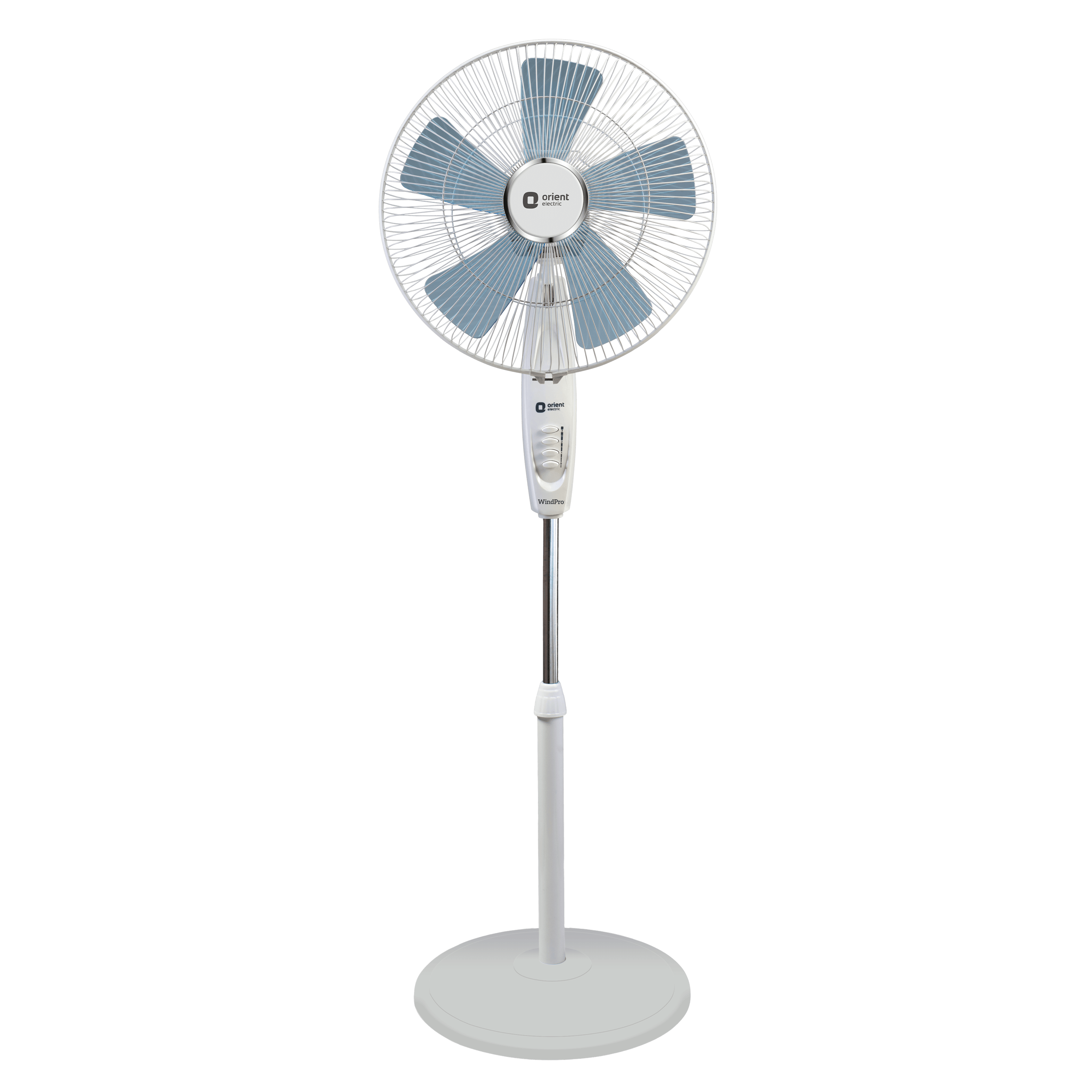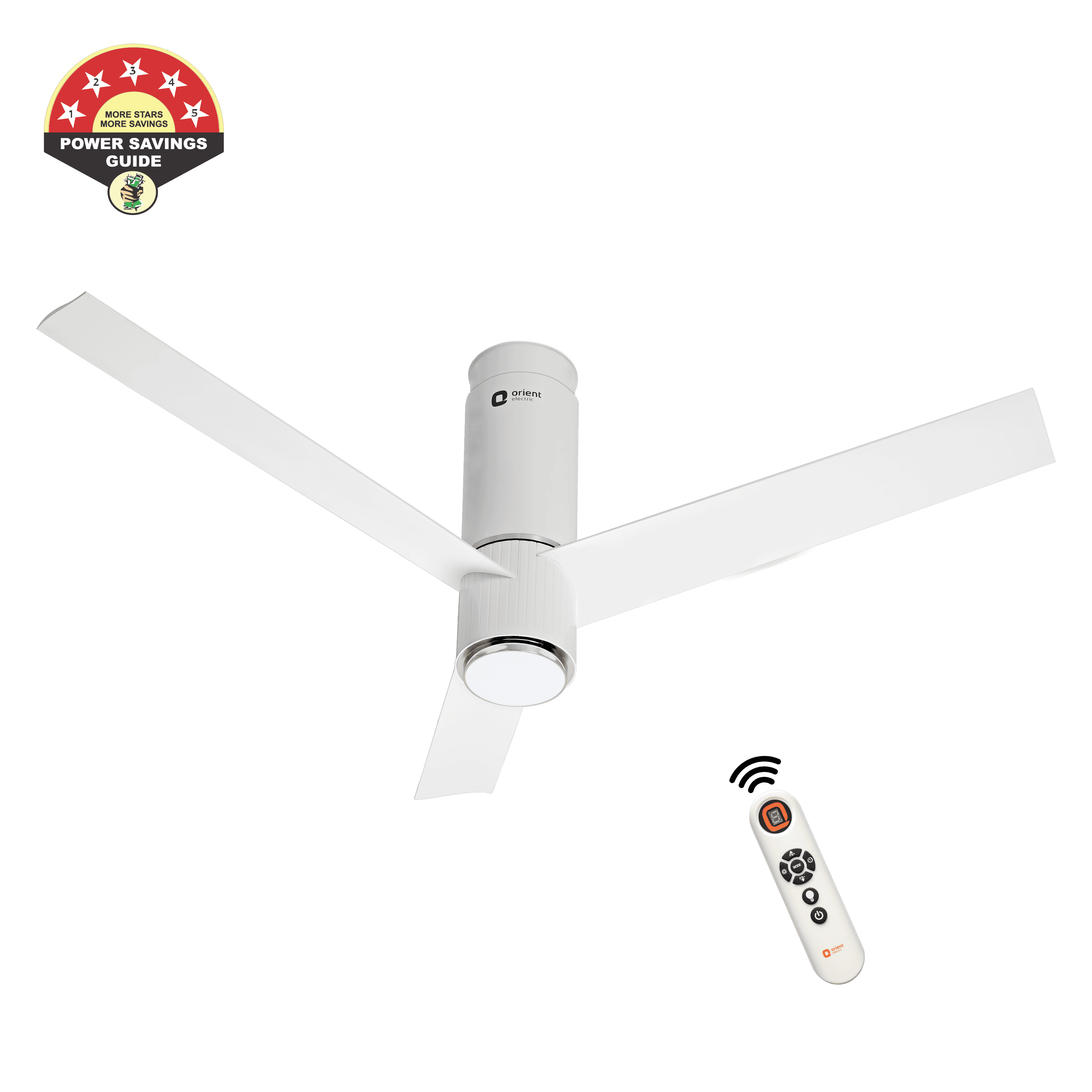
Quiet Your Noisy Ceiling Fan: A Beginner's Guide

A ceiling fan is supposed to make a gentle breeze, not annoying noises. We've all been there, trying to have a chat or watch TV, but that constant squeak or hum from the fan just won't go away. And yes, we are not just talking about the old fans that start squeaking due to wear and tear, but even some new ceiling fans tend to create noise. In this guide, we'll talk about why your ceiling fan might be making noise and what you can do about it. We'll also discuss why it's a good idea to get a quieter fan in the first place.
Identifying the Issue
Scratching/Rubbing Noise: There could be more than one reason why your ceiling fan is making scratching and rubbing noises. The fan canopy touching the top cover is a major cause of this problem which can be solved by fixing the canopy by leaving ample gap between the top cover and the canopy. In case the stator is touching the rotor, you will need to dismantle the fan, re-adjust the motor and stator, and then reassemble the unit.
The scratching/rubbing noise can also be there if the cover is rubbing against polyester film or loop clamp. In this case, dismantle the fan and rectify the fault. A worn-out stator shaft can also lead to a noisy fan; if that’s the case, you simply have to replace the stator. Many times, lack of lubrication in the bearing causes a fan to make noises. In such a scenario, first, start the fan and run it at full speed, if the problem persists, try re-greasing it and if the bearing is defective, then replace it.
Humming Noise: Ever heard a constant humming sound from your fan? One of the main reasons behind the same is the speed regulation through a cheap electronic regulator. In this case, use a capacitance-based electronic regulator, or resistance or choke-type regulator. Sometimes, a fan makes a humming noise only when it’s running on inverter power.
Tik-Tok Noise: Does your fan make a ticking or clicking sound? This might happen if the screws holding the fan's blades are loose or if the blades themselves are wobbly. You can fix this by tightening the screws or getting new blades.
If the humming sound is not due to any of the reasons mentioned here, the fan motor could be defective in which case you will have to replace it.
Maintenance Tips: Preventive maintenance is key to keeping your ceiling fan running smoothly and quietly. Regular cleaning to remove dust and dirt buildup is essential, as an accumulation of debris can throw off the balance of the fan blades and contribute to noise. Ensure that you clean the fan blades regularly. You can refer to our comprehensive ceiling fan cleaning tips for detailed instructions.
The Quiet Revolution
In recent years, there has been a quiet revolution in ceiling fan technology, with the introduction of silent ceiling fans powered by BLDC (Brushless Direct Current) motors and featuring aerodynamic designs. These advanced BLDC fans, such as the Orient Aeroquiet BLDC ceiling fan, offer whisper-quiet operation, making them an ideal choice for bedrooms, living rooms, and other spaces where peace is paramount.
Investing in a noiseless ceiling fan not only eliminates the annoyance of fan noise but also contributes to a more comfortable and serene living environment.
Importance of Buying Branded Fans
When it comes to purchasing a ceiling fan, it's essential to choose a reputable brand known for quality and reliability. Branded fans are subjected to rigorous testing and quality control measures, ensuring that they meet the highest standards of performance and durability. By opting for a good brand, you can have confidence in its ability to provide years of reliable service and quiet operation at the best ceiling fan price.
Seeking Professional Assistance
While many noise issues with ceiling fans can be resolved with DIY techniques, there may be instances where professional assistance is required. If you're unable to identify or rectify the source of the noise yourself, don't hesitate to seek help from a qualified service technician. They have the expertise and tools to diagnose and repair any underlying issues with your ceiling fan, restoring it to optimal performance and silence.
Conclusion:
Noisy fans can be a real pain, but there are ways to make them quieter. By understanding what's causing the noise and taking some simple steps, you can enjoy a much more peaceful experience at home. And if all else fails, consider getting a new fan that's designed to be quieter. Your ears will thank you!


















